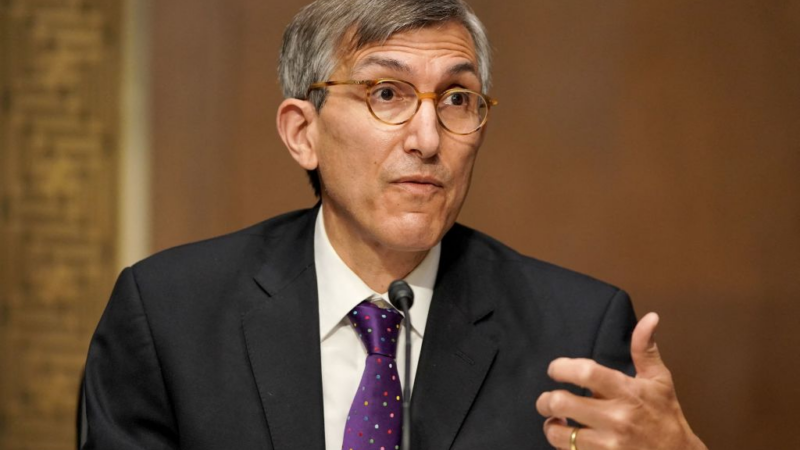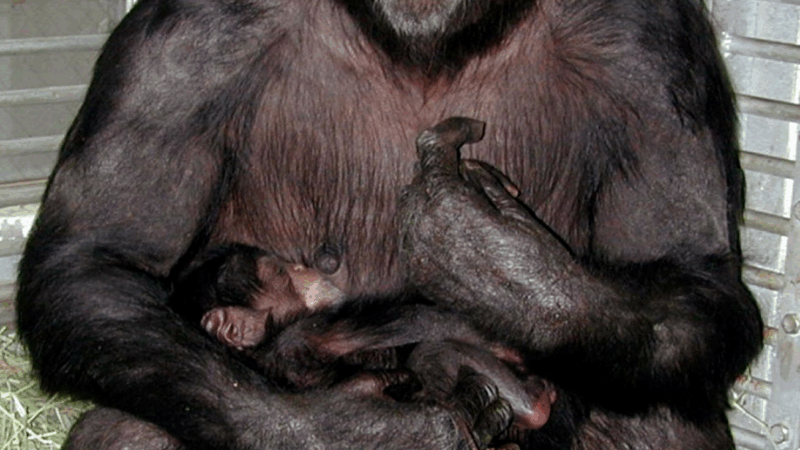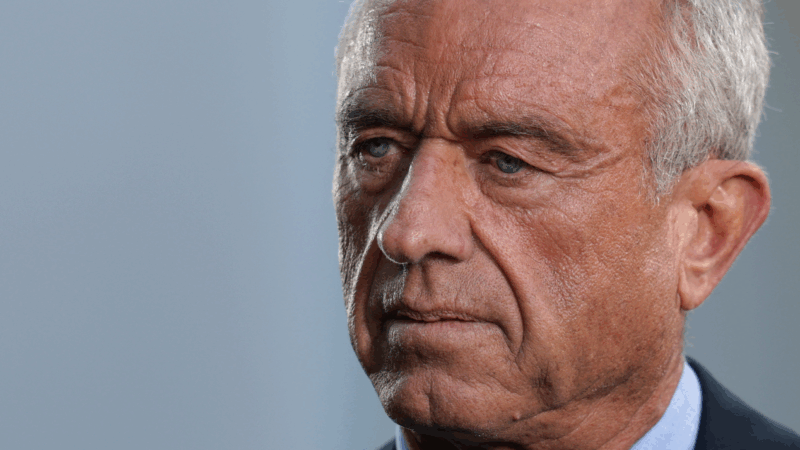Top FDA vaccine official forced out, cites RFK Jr.’s “misinformation and lies.”
The top vaccine official at the Food and Drug Administration who was forced out of the agency announced his resignation Friday, and sharply criticized his boss at the Health and Human Services Department: Robert F. Kennedy Jr.
Dr. Peter Marks has long steered the FDA’s regulation of vaccines. He became especially well known during the first Trump administration for his work with Operation Warp Speed, which was credited with the fast development of COVID-19 vaccines.
Marks, wrote in his resignation letter “it has become clear that truth and transparency are not desired by the secretary, but rather he wishes subservient confirmation of his misinformation and lies.”
In response, an HHS official released a statement that if Marks “does not want to get behind restoring science to its golden standard and promoting radical transparency, then he has no place at FDA under the strong leadership of Secretary Kennedy.”
The abrupt departure comes as concern has been rising among many public health experts about moves involving vaccines under Kennedy, who has questioned vaccine safety and effectiveness. An independent vaccine advisory committee meeting was cancelled, the National Institutes of Health has terminated research on vaccine resistance and misinformation and a vaccine critic has been picked to conduct a controversial study about vaccines and autism – a link that has long been debunked.
The announcement was met with disappointment by many in the scientific community.
“Peter Marks is one of the most brilliant, dedicated scientists and public servants,” wrote Dr. Ashish Jha, the dean of the Brown University School of Public Health who served as President Biden’s COVID-19 response coordinator.
Marks said he is leaving the agency with “a heavy heart.”
“I leave behind a staff of professionals who are undoubtedly the most devoted to protecting and promoting the public health of any group of people that I have encountered,” he wrote.
But then Mark’s issued a caution: “Efforts currently being advanced by some on the adverse health effects of vaccination are concerning.”
Marks cited special worry about the ongoing measles outbreak in Texas, which has now grown to at least 400 cases. Measles can cause a long list of potentially serious complications and the vaccines provide strong, safe protection, Marks said.
“Undermining confidence in well-established vaccines that have met the high standards for quality, safety, and effectiveness that have been in place for decades at FDA is irresponsible, detrimental to public health, and a clear danger to our nation’s health, safety. and security,” Marks wrote.
Marks says he was willing to work with the Secretary but worries “the unprecedented assault on scientific truth that has adversely impacted public health in our nation comes to an end so that the citizens of our country can fully benefit from the breadth of advances in medical science.”
‘Not for sale’: massive protest in Copenhagen against Trump’s desire to acquire Greenland
Thousands of people rallied in Copenhagen to push back on President Trump's rhetoric that the U.S. should acquire Greenland.
Uganda’s longtime leader declared winner in disputed vote
Museveni claims victory in Uganda's contested election as opposition leader Bobi Wine goes into hiding amid chaos, violence and accusations of fraud.
Opinion: Remembering Ai, a remarkably intelligent chimpanzee
We remember Ai, a highly intelligent chimpanzee who lived at the Primate Research Institute of Kyoto University for most of her life, except the time she escaped and walked around campus.
The near death — and last-minute reprieve — of a trial for an HIV vaccine
A trial was about to launch for a vaccine that would ward off the HIV virus. It would be an incredible breakthrough. Then it looked as if it would be over before it started.
Bessemer data center developer to request rezoning for additional 900 acres
The city’s attorney informed council members of the request on Tuesday, warning that there may be media scrutiny.
Is RFK Jr.’s Administration for a Healthy America — AHA — in the works or not?
The Administration for a Healthy America is RFK Jr.'s plan to tackle chronic disease, addiction and other persistent problems. But so far it's not being set up like previous new agencies.






